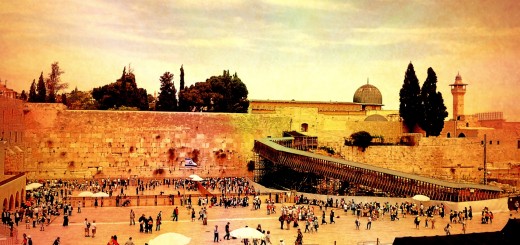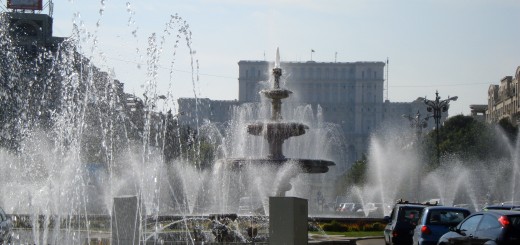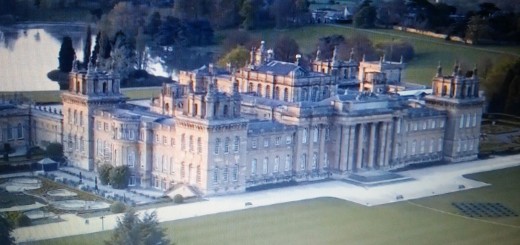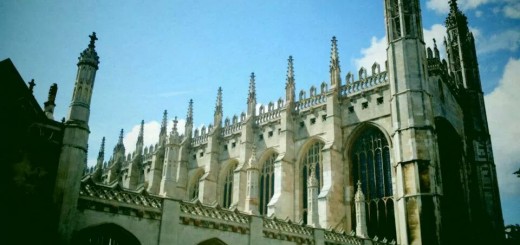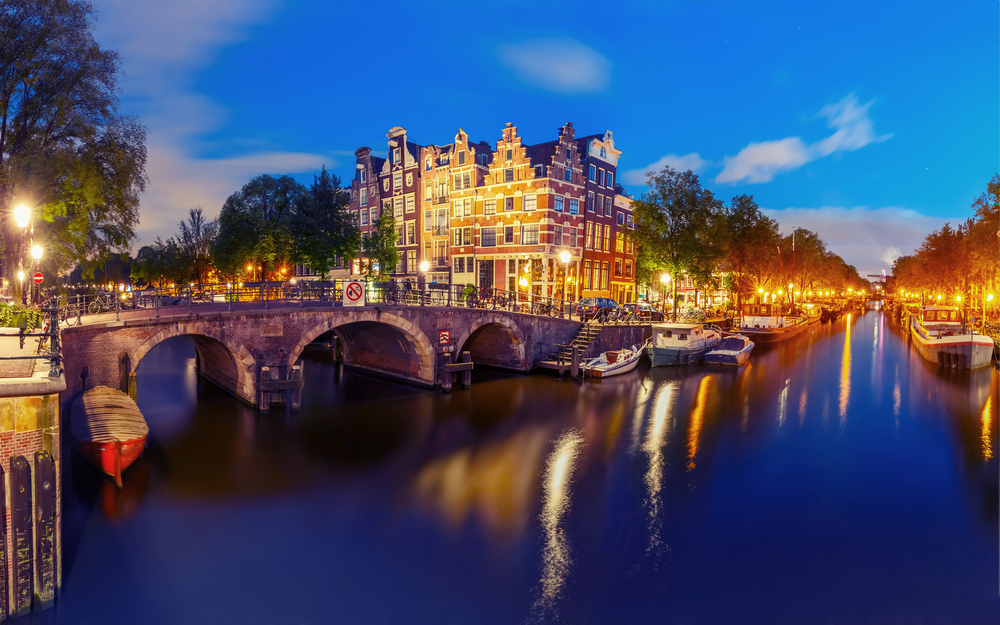Tourism, especially religious tourism is an important industry in Israel. The country’s temperate climate, beaches, archaeological, historical and biblical sites, and geography draw tourists.
In 2013, a record of 3.54 million tourists visited Israel with the most popular site of attraction being the Western Wall with 68% of tourists visiting there. Israel has the highest number of museums per capita in the world.
Jerusalem Israel
Image courtesy of exkrupier at freeimages.com
Languages
Israel has two official languages, Hebrew and Arabic. Hebrew is the primary language of the state and is spoken by the majority of the population, and Arabic is spoken by the Arab minority.
Museums
- Shrine of the Book, repository of the Dead Sea Scrolls Jerusalem
- The Israel Museum in Jerusalem is one of Israel’s most important cultural institutions that houses the Dead Sea Scrolls, along with collection of Judaica and European Art.
- Israel’s national Holocaust Museum, Yad Vashem, is the world central archive of Holocaust-related information.
- Beth Hatefutsoth, the Diaspora Museum, on the campus of Tel Aviv University, is an interactive museum devoted to the history of Jewish communities around the world.
- Mishkan Le’Omanut on Kibbutzn Ein Harod Meuhad is the largest art museum north of the country.
- Several Israeli Museums are devoted to Islamic culture, including the Rockefeller Museum and the L. A. Mayer Institute for Islamic Art, both in Jerusalem.
- The Rockefeller specializes in archaeological remains from the Ottoman and other periods of Middle East history. It is also the home of the first hominid fossil skull found in Western Asia called Galilee Man. A cast of the skull is on display at the Israel Museum.
Cuisine
- Israeli cuisine includes local dishes as well as dishes brought to the country by Jewish immigrants from the diaspora. Since the establishment of the State in 1948, and particularly since the late 1970s, an Israeli fusion cuisine has developed. Most Israeli food is kosher and cooked in accordance with the Jewish Halakha. Although most of its population is either Jewish or Muslim, pork is both produced and consumed in Israel.
- Israeli cuisine has adopted, and continues to adapt, elements of various styles of Jewish cuisine, particularly the Mizrahi, Sephardic, and Ashkenazi styles of cooking, along with Moroccan Jewish, Iraqi Jewish, Ethiopian Jewish, Indian Jewish, Iranian Jewish and Yemeni Jewish influences. It incorporates many foods traditionally eaten in the Arab, Middle Eastern and Mediterranean cuisines, such as falafel, hummus, shakshouka, couscous, and za’atar, which have become common ingredients in Israeli cuisine. Schnitzel, pizza, hamburgers, French fries, rice and salad are also very common in Israel.
Sports
- Sammy Ofer Stadium of Haifa. Israel’s newest stadium
- The Maccabiah Games, an Olympic-style event for Jewish athletes and Israeli athletes, was inaugurated in the 1930s, and has been held every four years since then.
- In 1964 Israel hosted and won the Asian Nations Cup; in 1970 the Israel national football team managed to qualify to the FIFA World Cup, which is still considered the biggest achievement of Israeli football.
- The 1974 Asian Games held in Tehran, were the last Asian Games in which Israel participated, and was plagued by the Arab countries which refused to compete with Israel, and Israel since ceased competing in Asian competitions. Israel was excluded from the 1978 Asian Games due to security and expense involved if they were to participate. In 1994, UEFA agreed to admit Israel and all Israeli sporting organizations now compete in Europe.
- The most popular spectator sports in Israel are association football and basketball. The Israeli Premier League is the country’s premier football league, and the Israeli Basketball Super League is the premier basketball league.
- Maccabi Haifa, Maccabi Tel Aviv, Hapoel Tel Aviv and Beitar Jerusalem are the largest sports clubs. Maccabi Tel Aviv, Maccabi Haifa and Hapoel Tel Aviv have competed in the UEFA Champions League and Hapoel Tel Aviv reached the UEFA Cup quarter-finals. Maccabi Tel Aviv B.C. has won the European championship in basketball six times. Israeli tennis champion Shahar Pe’er ranked 11th in the world on 31 January 2011.
- Boris Gelfand, chess Grandmaster. Chess is a leading sport in Israel and is enjoyed by people of all ages. There are many Israeli grandmasters and Israeli chess players have won a number of youth world championships. Israel stages an annual international championship and hosted the World Team Chess Championship in 2005. The Ministry of Education and the World Chess Federation agreed upon a project of teaching chess within Israeli schools, and it has been introduced into the curriculum of some schools.
- The city of Beersheba has become a national chess center, with the game being taught in the city’s kindergartens. Owing partly to Soviet immigration, it is home to the largest number of chess grandmasters of any city in the world. The Israeli chess team won the silver medal at the 2008 Chess Olympiad and the bronze, coming in third among 148 teams, at the 2010 Olympiad. Israeli grandmaster Boris Gelfand won the Chess World Cup in 2009 and the 2011 Candidates Tournament for the right to challenge the world champion. He only lost the World Chess Championship 2012 to reigning world champion Anand after a speed-chess tie breaker.
- Krav Maga, a martial art developed by Jewish ghetto defenders during the struggle against fascism in Europe, is used by the Israeli security forces and police. Its effectiveness and practical approach to self-defense, have won it widespread admiration and adherence round the world.
- To date, Israel has won seven Olympic medals since its first win in 1992, including a gold medal in windsurfing at the 2004 Summer Olympics. Israel has won over 100 gold medals in the Paralympic Games and is ranked about 15th in the all-time medal count. The 1968 Summer Paralympics were hosted by Israel.
Science and technology and Israel Space Agency
There is the particle accelerator at the Weizmann Institute of Science, Rehovot
Israeli universities and colleges:
Israel has nine public universities that are subsidized by the state. The Hebrew University of Jerusalem, Israel’s second-oldest university after the Technion, houses the National Library of Israel, the world’s largest repository of Judaica and Hebraica. The Technion, the Hebrew University, and the Weizmann Institute ranked among the world’s 100 top universities by the prestigious ARWU academic ranking.
Other major universities in the country include:
- Tel Aviv University (TAU)
- University of Haifa
- The Open University
- Bar-Ilan University
- Ben-Gurion University of the Negev
- Ariel University, in the West Bank, is the newest university institution, upgraded from college status, and the first in over thirty years.
- Israel’s seven research universities,excluding the Open University, are consistently ranked among top 500 in the world. Israel has produced six Nobel Prize-winning scientists since 2002 and has been frequently ranked as one of the countries with the highest ratios of scientific papers per capita in the world.
Hotels
- The King David
- Leonardo Hotel Jerusalem
- Inbal Jerusalem Hotel
- Arthur Hotel Jerusalem – an Atlas Boutique Hotel
- Hotel Yehuda
- David Citadel Hotel
- City Center Jerusalem
- Mamilla Hotel
- Harmony Hotel Jerusalem – an Atlas Boutique Hotel
- Waldorf Astoria Jerusalem
- Dan Boutique Jerusalem
- American Colony
- Arcadia Ba’Moshava Jerusalem
- Eyal Hotel
There are many more hotels in Jerusalem I just listed a few.
Israel plays a major part in future world history, therefore, I would like to indulge a little about Israel. I’m sure most of you know Israel’s history.
Israel officially the State of Israel is a country in Western Asia, on the southeastern shore of the Mediterranean Sea. Israel shares land borders with Lebanon on the north, Syria on the northeast, Jordan on the east, Palestinian territories the West Bank and Gaza Strip on the east and west, Egypt on the southwest and the Gulf of Aqaba in the Red Sea on the south. Israel’s financial center is Tel Aviv, while Jerusalem is both the capital and the most populated city. Israeli sovereignty over Jerusalem is internationally disputed.
In its Basic Laws, Israel defines itself as a Jewish and Democratic State. Israel is a representative democracy with a parliamentary system, proportional representation and universal suffrage.
The Prime Minister is head of government and the Knesset serves as Israel’s legislative body. Israel is a developed country and an OECD member with the 43rd largest economy in the world by nominal gross domestic product as of 2012.
The country has the highest standard of living in the Middle East and the fifth highest in Asia and has one of the highest life expectancies in the world.
Upon independence in 1948, the country formally adopted the name “State of Israel”, “Medinat Yisrael.”
The names Land of Israel and Children of Israel have been used to refer to the biblical Kingdom of Israel and the Jewish nation. The name Israel refers to the patriarch Jacob, “Yisra’el.
The area is also known as the Holy Land, being holy for all Abrahamic religions including Judaism, Christianity, Islam and the Bah Bahá’í Faith. From 1920 the whole region was known as Palestine, under British Mandate, until the Israel Declaration of Independence of 1948.
Through the centuries, the territory was known by a various other names, including Judea, Samaria, Southern Syria, Syria Palaestina, Kingdom of Jerusalem, Judaea Province, Coele-Syria, Retjenu and Canaan.
Climate
Temperatures in Israel vary:
Coastal areas, such as those of Tel Aviv and Haifa, have a typical Mediterranean climate with cool, rainy winters and long, hot summers.
Beersheba and the Northern Negev have a semi-arid climate with hot summers, cool winters and fewer rainy days than the Mediterranean climate.
Southern Negev and the Arava areas have desert climate with very hot and dry summers, and mild winters with few days of rain. The highest temperature in the continent of Asia, 53.7 °C or 128.7 °F, was recorded in 1942 at Tirate Zvi kibbutz in the northern Jordan river valley.
Mountainous regions can be windy, cold, and sometimes snowy and areas at elevations of 750 meters or more, will have at least one snowfall each year this is the same elevation as Jerusalem.
From May to September, rain in Israel is rare. With scarce water resources, Israel has developed various water-saving technologies, including drip irrigation. Israelis take advantage of the sunlight available for solar energy, making Israel the leading nation in solar energy use per capita, almost every house uses solar panels for water heating.
Diplomatic Relations
Israel maintains diplomatic relations with 157 countries and has 100 diplomatic missions around the world. Only three members of the Arab League have normalized relations with Israel:
Egypt and Jordan signed peace treaties in 1979 and 1994 and Mauritania opted for full diplomatic relations with Israel in 1999.
Despite the peace treaty between Israel and Egypt, Israel is still widely considered an enemy country among Egyptians. Under Israeli law, Lebanon, Syria, Saudi Arabia, Iraq, Iran, Sudan, and Yemen are enemy countries and Israeli citizens may not visit them without permission from the Ministry of the Interior.
The Soviet Union and the United States were the first two countries to recognize the State of Israel, having declared recognition simultaneously.
India established full diplomatic ties with Israel in 1992 and has fostered a strong military, technological and cultural partnership with the country since then. According to an international opinion survey conducted in 2009 on behalf of the Israeli Foreign Ministry, India is the most pro-Israel country in the world.
Germany’s strong ties with Israel include cooperation on scientific and educational endeavors and the two states remain strong economic and military partners. Under the reparations agreement, by 2007 Germany had paid 25 billion euros in reparations to the Israeli state and individual Israeli holocaust survivors.
United Kingdom has kept full diplomatic relations with Israel since its formation having had two visits from heads of state in 2007.
Relations between Turkey and Israel took a downturn after the Gaza War and Israel’s raid of the Gaza flotilla. IHH, which organized the flotilla, is a Turkish charity that has been challenged on ties to Hamas and Al-Qaeda.
Relations between Israel and Greece have improved since 1995 due to the decline of Israeli-Turkish relations. The two countries have a defense cooperation agreement and in 2010, the Israeli Air Force hosted Greece’s Hellenic Air Force in a joint exercise at the Uvda base.
Azerbaijan is one of the few majority Muslim countries to develop bilateral strategic and economic relations with Israel. The relationship includes cooperation in trade and security matters and cultural and educational exchanges.
In Africa, Ethiopia is Israel’s main and closest ally in the continent due to common political, religious and security interests. Israel provides expertise to Ethiopia on irrigation projects and thousands of Ethiopian Jews, Beta Israel, live in Israel.
As a result of the 2009 Gaza War, Mauritania, Qatar, Bolivia, and Venezuela suspended political and economic ties with Israel.
Israel is included in the European Union’s European Neighbourhood Policy, ENP, which aims at bringing the EU and its neighbours closer.
Israel does not have any diplomatic relations with most Muslim Countries, including Pakistan, Bangladesh and United Arab Emirates. Many Israelis are not entitled to visit these countries.
International humanitarian efforts
Israel has a history of providing emergency aid and humanitarian response teams to disasters across the world. For the past 26 years, Israel has sent out 15 aid missions to countries struck by natural disasters.
Israel’s humanitarian efforts officially began in 1958, with the establishment of MASHAV, the Israeli Ministry of Foreign Affairs Agency for International Development Cooperation. MASHAV has provided humanitarian aid to over 140 countries.
Introduction photo featured on top is the Western Wall in Jerusalem, Kotel, courtesy of anatleviB at freeimages.com

